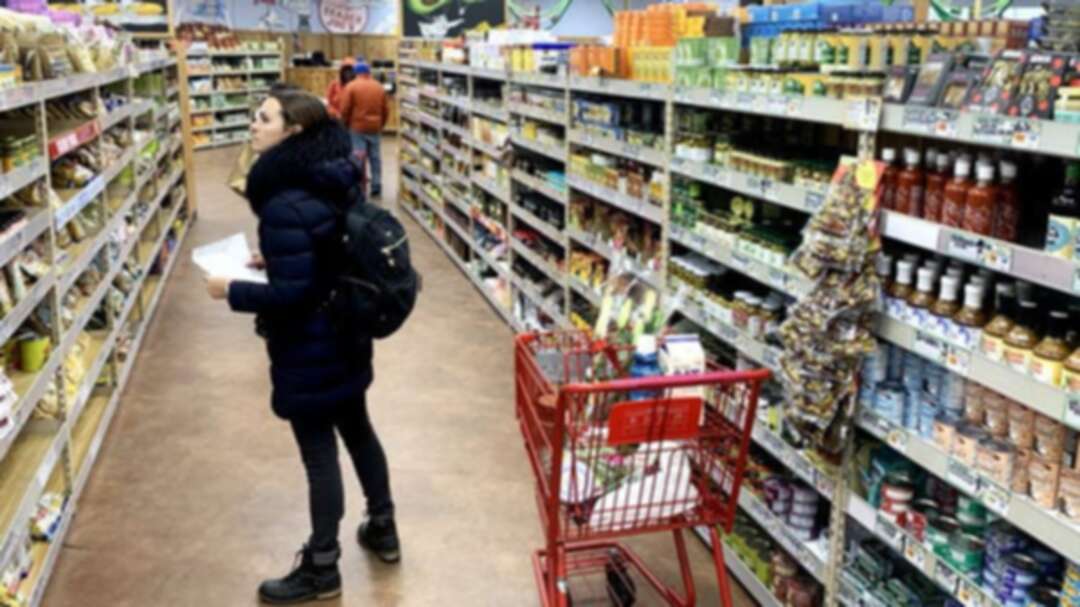-
Coronavirus: Checklist to prepare for isolation and lockdown

The coronavirus pandemic is spreading around the world, bringing with it the risk of being unprepared for isolation or lockdown conditions - whether mandatory or voluntary. for isolation and lockdown
Over 2.6 billion people worldwide are being instructed to observe lockdowns as a preventative measure against the spread of the virus. Most of the countries - including India, Britain, France, Italy, and China - are imposing mandatory confinement, while other countries have established curfews, quarantines or strong recommendations to stay at home.
American medical and emergency experts recommend having the following items at home during the outbreak:
A 30-day supply of medications
Make sure to have a 30-day supply of any medications you may need, says New Jersey board-certified anesthesiologist Dr. Nina Radcliff, adding that a 90-day supply “would be even better.”
Connecticut-based paramedic Liz Connolly advised having a fever-reducing medication like Tylenol in the medicine cabinet, to treat the fever in case you contract the virus, technically known as COVID-19.
Drinking water
In most places tap water is safe to drink, but for people living in areas where the tap water is not potable, it is best to stock up on water bottles or buy a water filter, according to Dr. Radcliff.
Connolly also recommends buying thirst-quenching drinks such as Gatorade or Pedialyte, to help with dehydration in the event you do get sick.
 People wearing masks shop at Jerusalem's Mahane Yehuda market on March 19, 2020. (AP)
People wearing masks shop at Jerusalem's Mahane Yehuda market on March 19, 2020. (AP)Two-week supply of fruits and vegetables
Dr. Radcliff recommends having a two-week supply of fruits and vegetables, as well as nuts – which have a longer shelf life. Buying frozen or canned fruits and vegetables can serve to extend the shelf life.
Easily digestible foods
The World Health Organization has reported that common symptoms of the virus include fever, tiredness, and dry cough, while other symptoms include nausea and diarrhea.
“We are seeing an uptick of COVID-19 patients with gastrointestinal symptoms, so having foods in your pantry like plain crackers, applesauce, soup, and rice are recommended,” said Connolly.
Products to support mental health
Dr. Radcliff recommends items for self-care including films, games, crafts, books, and gardening tools. Quarantine can be an opportunity to connect with family - through activities like movies and games – and nature, according to Dr. Radcliff.
Keep emergency numbers at hand
Many states in the US and countries around the world are setting up specific hotlines for coronavirus questions and emergencies. Find out if there is a specific phone number that applies to you and keep all emergency numbers at hand. for isolation and lockdown
 Empty shelves for disinfectant wipes wait for restocking, as concerns grow around COVID-19, in New York. (AP)
Empty shelves for disinfectant wipes wait for restocking, as concerns grow around COVID-19, in New York. (AP)What not to do: Hoard
People have responded to the COVID-19 outbreak with panic buying, which Dr. Radcliff and Connolly advise against.
“Don’t panic, don’t go and hoard supplies, especially medical supplies like gloves and masks,” said Connolly.
“It’s important to remember there is currently no threat to the food supply, so there is no need to hoard,” said Radcliff. “Just because someone else is hoarding something, doesn’t mean you need to.” levant
source: Emily Judd levant
You May Also Like
Popular Posts
Caricature
BENEFIT Sponsors BuildHer...
- April 23, 2025
BENEFIT, the Kingdom’s innovator and leading company in Fintech and electronic financial transactions service, has sponsored the BuildHer CityHack 2025 Hackathon, a two-day event spearheaded by the College of Engineering and Technology at the Royal University for Women (RUW).
Aimed at secondary school students, the event brought together a distinguished group of academic professionals and technology experts to mentor and inspire young participants.
More than 100 high school students from across the Kingdom of Bahrain took part in the hackathon, which featured an intensive programme of training workshops and hands-on sessions. These activities were tailored to enhance participants’ critical thinking, collaborative problem-solving, and team-building capabilities, while also encouraging the development of practical and sustainable solutions to contemporary challenges using modern technological tools.
BENEFIT’s Chief Executive Mr. Abdulwahed AlJanahi, commented: “Our support for this educational hackathon reflects our long-term strategic vision to nurture the talents of emerging national youth and empower the next generation of accomplished female leaders in technology. By fostering creativity and innovation, we aim to contribute meaningfully to Bahrain’s comprehensive development goals and align with the aspirations outlined in the Kingdom’s Vision 2030—an ambition in which BENEFIT plays a central role.”
Professor Riyadh Yousif Hamzah, President of the Royal University for Women, commented: “This initiative reflects our commitment to advancing women in STEM fields. We're cultivating a generation of creative, solution-driven female leaders who will drive national development. Our partnership with BENEFIT exemplifies the powerful synergy between academia and private sector in supporting educational innovation.”
Hanan Abdulla Hasan, Senior Manager, PR & Communication at BENEFIT, said: “We are honoured to collaborate with RUW in supporting this remarkable technology-focused event. It highlights our commitment to social responsibility, and our ongoing efforts to enhance the digital and innovation capabilities of young Bahraini women and foster their ability to harness technological tools in the service of a smarter, more sustainable future.”
For his part, Dr. Humam ElAgha, Acting Dean of the College of Engineering and Technology at the University, said: “BuildHer CityHack 2025 embodies our hands-on approach to education. By tackling real-world problems through creative thinking and sustainable solutions, we're preparing women to thrive in the knowledge economy – a cornerstone of the University's vision.”
opinion
Report
ads
Newsletter
Subscribe to our mailing list to get the new updates!






















